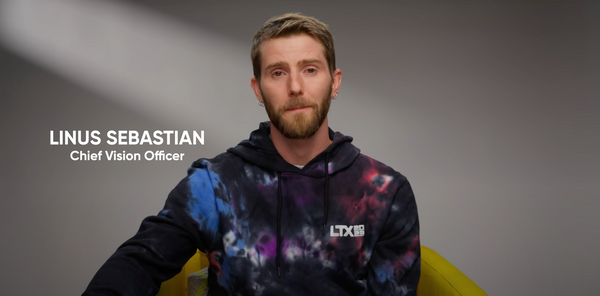Let's talk about trust – but differently
Let’s talk about trust. Argh, I know what you think right now.
Let’s talk about trust.
Argh, I know what you think right now, and I admit: The last three newsletters covered this topic already in some ways. (And yes, I stumbled upon this good TED talk that gives some simple advice on building and rebuilding trust in an organization).
But bare with me for a moment, I want to tell you a little story about trust. And it has nothing to do with work – at least for now.
Back in July, I upgraded some of the components in my PC. It didn’t go smoothly, and I had some troubleshooting to do.
Nevertheless, I was thrilled by the experience; it was a lot of fun. So I continued, bought some cheap parts, and built a second system from scratch.
Simultaneously, I started to follow some tech-related creators on YouTube, like Bitwit, GamersNexus, or Jayztwocents.
As much as I enjoyed and learned from their content, I déformation professionelle kicked in, and I started to analyze their business model.
All of the mentioned channels have the classic pre- and midroll ads provided by YouTube. And every host bakes sponsorships into their videos where the host talks about a service or product. These short segments are somewhat secluded from the video’s main topic.
As a person with a flair for journalistic independence, I came to a surprising realization: Despite these native ads, I still trusted the creators.
And I asked myself:

What's Media Trust?
Currently, I’m writing my master thesis for Hyper Island around media trust. The academic research defines trust as a mechanism in helping people with the risk of an open future like planning or contracts.
Sociologist Niklas Luhmann explained that trust leads to reduced complexity of the future, and the trusting actor (aka the trustee) acts as if the future is limited to only a certain amount of possibilities.
Pretty simple so far, right?
Media trust is a bit different. Professor Bernd Blöbaum identified five antecedents of trust:
- Competence: the perceived skill of an actor to fulfil a task in a specific situation.
- Integrity: the consistency in past actions, a trustworthy communication of actors towards the trustee, and the faith that the trustee has a strong sense of fairness, and its actions are aligned with its promises.
- Benevolence: the trustee’s intention towards the trustor or the motives and interests that motivate action.
- Reputation: the degree to which a trustee can fulfil the expectations of a trustor.
- Symbols: e.g., academic titles, familiar typefaces, and article layouts, as well as rankings, ratings, and recommendations that can quickly be taken into the trustor’s quality assessment since they are transparent and visible.
The Key Factors
Now, let’s take these five indicators and map them to the YouTubers. They are indeed competent and knowledgeable in their space. However, competence is not the key factor in play; neither are symbols nor reputation.
For me, the two decisive antecedents are benevolence and integrity. As I learned more about these two factors, I went back and searched for examples that fall into benevolence and integrity.
One example is the following video by JayzTwoCents. He talks about a sponsor, NordVPN, that got hacked. Interestingly, he also talks about trust. And: He stopped working with NordVPN as he was unhappy about the way the company handled the data breach.
Another instance is a video wholly dedicated to transparency around sponsorship and the business model.
Integrity and benevolence also came into play in a video by GamersNexus, where host Steve is exceptionally candid about a specific company, probably damaging his business relations with them.
In a way, these examples are also symbols of trust as visible statements of transparency. I have limited possibilities as a consumer to judge whether the creators always follow through with their promises.
However, the fact that they talk openly about their business or be frank with companies they might rely on for content and sponsorships builds trust, at least for me.





